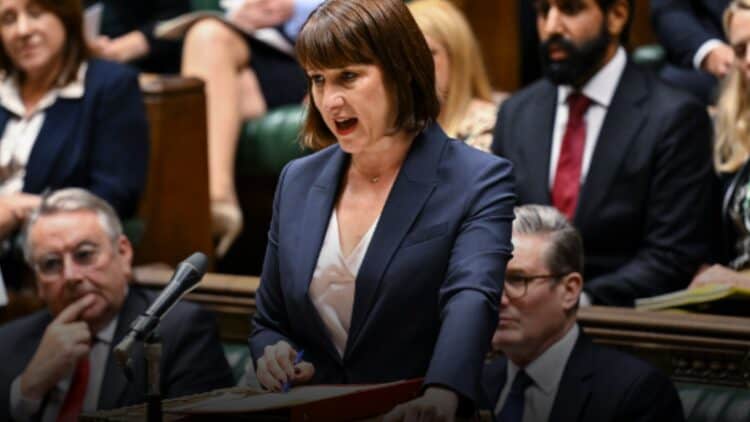Chancellor Rachel Reeves is reportedly reconsidering Labour’s plan to end non-dom tax status due to concerns that the policy may not generate the expected revenue. The decision follows reports that Treasury officials are worried the Office for Budget Responsibility (OBR) could conclude the policy would fail to raise significant funds.
Labour had initially pledged to close loopholes in the non-domiciled tax regime, predicting it could raise up to £2.6 billion over the course of a parliament. However, Treasury concerns that wealthy non-doms could leave the UK in response, reducing the potential gains, have prompted a rethink.
Concerns Over Revenue Impact
The Guardian revealed this week that the Treasury fears the OBR could determine that scrapping non-dom tax status might not raise the predicted revenue. There is concern that wealthy individuals might choose to leave the UK or find alternative methods to avoid the tax changes, resulting in little to no financial gain for the Treasury.
In response, Reeves is reportedly reviewing the details of the proposal. A government official told the Financial Times: “We will be pragmatic, not ideological. We won’t press on regardless, but we are not going to abandon this completely.”
Labour’s original plan aimed to use the revenue from closing non-dom tax loopholes to fund public services, including school breakfast clubs and additional hospital appointments. However, with the policy under scrutiny, the potential impact on funding those initiatives remains uncertain.
Reeves’ Approach to Fiscal Policy
Reeves has emphasised that Labour will take a careful approach to fiscal policy, ensuring that any reforms are practical and economically sound. As part of this approach, she is also considering changes to how the government calculates its fiscal rules.
Ahead of the 30 October budget, Reeves is exploring adjustments that could free up billions of pounds for capital investment. By changing how the government measures debt, officials believe they could allocate up to £50 billion for infrastructure projects, such as roads, housing, and energy, while still adhering to fiscal rules.
The changes would allow the government to offset assets, such as student loans, against the national debt. This adjustment could enable more investment in long-term projects aimed at boosting economic growth, without affecting day-to-day spending.
A Pragmatic Approach to Investment
Reeves has also spoken out about the need to reassess how public investment is valued in government. At Labour’s annual conference in Liverpool, she argued that the Treasury has historically undervalued long-term public investments. She hopes to change the system to better reflect the potential economic benefits of capital spending.
Economists have long criticised the UK’s approach to public investment, arguing that it disincentivises governments from making necessary long-term commitments that could foster economic growth. The proposed reforms could mark a significant shift in how the government approaches spending on critical infrastructure.
What’s Next for Labour’s Non-Dom Plans?
With the OBR’s assessment looming, Reeves is expected to continue reviewing Labour’s plan to scrap non-dom tax status. While the party remains committed to addressing inequalities in the tax system, the chancellor is clearly taking a cautious approach to ensure that any changes deliver the intended benefits.
As the budget draws closer, it remains to be seen how Labour will adjust its policies to balance fairness, revenue generation, and economic growth.
You may also like: Donald Trump makes bizarre claim about Nigel Farage’s election success







